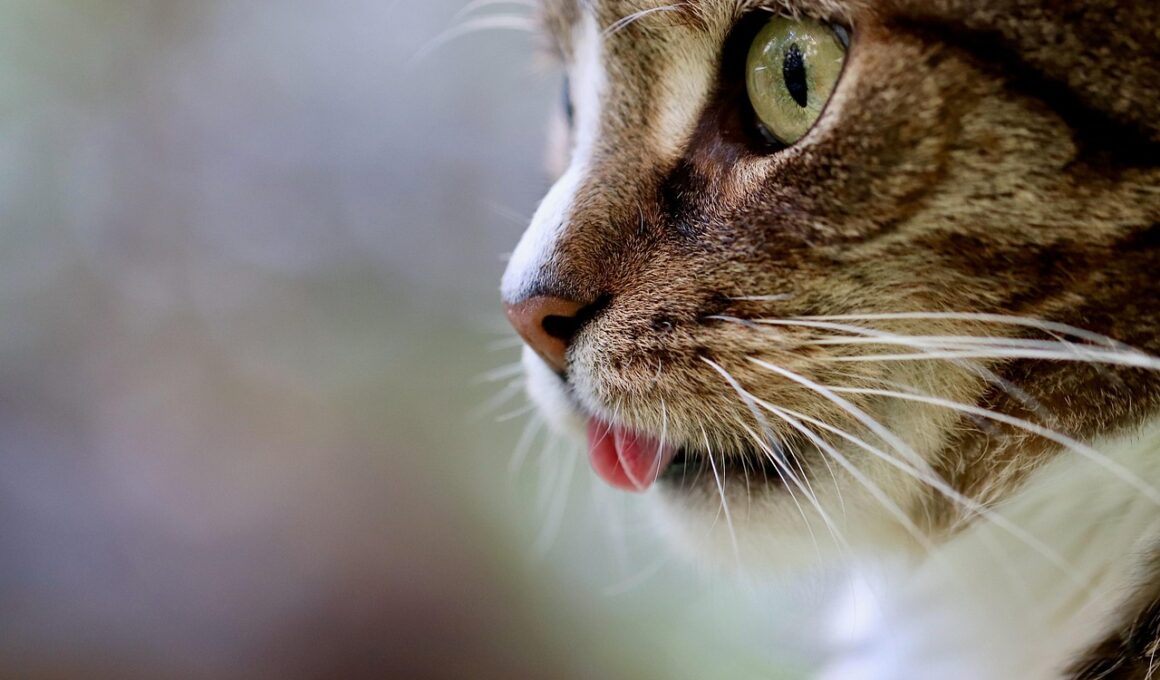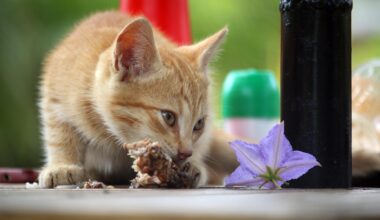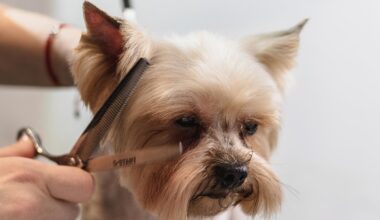The Importance of Vitamin E for Your Cat’s Health
Vitamin E is a crucial nutrient that supports your cat’s overall health and well-being. As a powerful antioxidant, it helps neutralize free radicals in the body, which can cause cellular damage. Cats require Vitamin E for maintaining healthy skin, shiny fur, and proper immune function. While most cat foods are fortified with vitamins, it’s essential to ensure your feline friend is receiving enough Vitamin E to support their specific needs. In some cases, dietary deficiencies can lead to serious health problems, including compromised immune response and skin disorders. Regular veterinary check-ups can help monitor your cat’s nutritional needs. It’s also critical to consult with your veterinarian to determine the appropriate dosage, considering factors like age, weight, and health status. Incorporating Vitamin E-rich foods into your cat’s diet can also have significant benefits. Foods such as fish oil and leafy greens provide natural sources of this essential nutrient. It is vital not to administer supplements without professional guidance, as excess Vitamin E can lead to adverse effects in some cases. Each cat is unique, and understanding their dietary requirements is crucial for optimal health.
Vitamin E plays a significant role in supporting your cat’s skin health. Healthy skin forms the first line of defense against environmental stressors like bacteria and allergens. A deficiency in Vitamin E can lead to dry, flaky skin and dermatitis, which may cause your cat discomfort. A balanced diet that includes adequate Vitamin E helps maintain skin elasticity and hydration. Additionally, Vitamin E contributes to the fur quality in cats, promoting a shiny and healthy coat. Similarly, it plays a role in repairing skin damage, whether from grooming or minor injuries. If you notice changes in your cat’s coat or skin condition, consult your veterinarian immediately. They can help determine if a Vitamin E deficiency could be the culprit. In some cases, incorporating specific supplements or dietary changes can greatly improve your cat’s skin health. Always remember that not all topical treatments are safe for cats, so proper consultation is critical. Providing your pet with the right amount of Vitamin E ensures they remain comfortable and healthy. Investing in your cat’s skincare routine can save you from expensive vet visits down the road.
Boosting Immunity with Vitamin E
Vitamin E is essential for bolstering your cat’s immune system. A strong immune system helps protect against infections and diseases. By neutralizing harmful free radicals, Vitamin E plays a crucial role in maintaining cellular integrity and function. Cats, especially older ones or those with existing health conditions, can benefit from increased Vitamin E intake. Chronic inflammation and illness can weaken your cat’s immune response. Maintaining optimal Vitamin E levels aids in the production of immune cells, essential for fighting off infections. Besides its antioxidant benefits, Vitamin E also contributes to the overall health of red blood cells. Healthy red blood cells, in turn, ensure that oxygen circulation is efficient throughout your cat’s body. If you notice a decline in your cat’s energy or health, consider discussing dietary adjustments with your veterinarian. They may recommend increasing Vitamin E through natural supplements or dietary changes. As a pet owner, prioritizing your cat’s health should be an ongoing commitment. Alongside regular vet check-ups, keeping track of their nutrient intake can contribute positively to their immunity.
Incorporating Vitamin E into your cat’s diet can come in various forms. Naturally occurring sources include fresh food items like spinach, broccoli, and fish oil. Many commercially available cat foods provide adequate Vitamin E. However, additional supplementation might be necessary for certain cats. To help boost your cat’s Vitamin E levels, consult with your veterinarian for appropriate recommendations. The appropriate amount depends on your cat’s weight, age, and health status, making professional guidance crucial. Furthermore, while Vitamin E is essential, balance is key. Over-supplementation can lead to adverse effects such as gastrointestinal issues or even interfere with other essential nutrients. Such discrepancies can lead to health complications. Hence, it’s imperative to maintain a balanced diet tailored to your cat’s specific needs. Observing your cat’s overall well-being is also vital. A shiny coat, ample energy, and vibrant behavior usually indicate good health, including adequate Vitamin E levels. If you notice any changes, do not hesitate to reach out to your veterinarian for advice.
Signs of Vitamin E Deficiency in Cats
Recognizing the signs of Vitamin E deficiency in your cat is crucial for timely intervention. Symptoms can manifest in several ways, including lack of energy, reduced appetite, skin issues, or a dull coat. One prominent sign of Vitamin E deficiency in cats is muscle weakness. Additionally, you may notice your cat’s skin becoming dry, flaky, or showing signs of irritations. These conditions can significantly alter your cat’s quality of life. To counteract this, look for changes in your cat’s behavior, as cats are known to conceal discomfort. Not only should you monitor their appearance, but also their overall energy levels. If a usually active cat suddenly becomes lethargic or withdrawn, it may warrant a dietary review. Consult your veterinarian at the first signs of these symptoms. They can recommend blood tests to assess vitamin levels and suggest dietary changes if needed. Addressing deficiencies swiftly is critical to prevent long-term health issues. Don’t forget that every cat is unique, and factors like age, weight, and lifestyle can influence their nutrient needs.
Providing a balanced diet is paramount for ensuring your cat’s health, especially concerning Vitamin E intake. Foods rich in Vitamin E should compose a significant portion of your cat’s daily meals. Look for high-quality commercial pet foods that meet the nutritional standards set by veterinary nutritionists. Incorporating cooked fish such as salmon, sardines, or trout can also substantially increase Vitamin E intake and delight your feline’s taste buds. Fresh vegetables like spinach and broccoli can serve as nutritious snacks, enhancing Vitamin E levels and providing added fiber. However, always ensure any added ingredients are safe for your cat. Consulting your veterinarian regarding new dietary choices is always recommended. They may have suggestions for higher-quality food or the best supplement options for your specific cat. Regularly reviewing your cat’s dietary needs will ensure they remain healthy and energetic. In addition, monitor their weight and body condition regularly, as these can indicate dietary adequacy. A proactive approach to your cat’s nutrition can help prevent numerous health issues down the road. Remember that an ounce of prevention is worth a pound of cure when considering pet health.
Conclusion: Prioritizing Vitamin E for Health
In conclusion, the importance of Vitamin E for your cat’s health cannot be overstated. This essential nutrient supports various bodily functions, including skin health, immune response, and antioxidant protection. Ensuring that your cat receives adequate Vitamin E through their diet can promote vibrant health and longevity. As a responsible pet owner, monitoring your cat’s nutritional needs is crucial. Consult your veterinarian regularly to adjust their diet as necessary, incorporating sources of Vitamin E. Prioritizing nutrient-rich foods and being attentive to your cat’s health can help maintain their energy levels and overall wellbeing. Additionally, being aware of the signs of Vitamin E deficiency enables you to act swiftly if needed. By ensuring that your cat receives this essential nutrient, you set the stage for their continued vitality. Regular vet visits, combined with a balanced diet, create a strong foundation for your cat’s health. There’s no substitute for a happy, healthy cat, and the right nutrition plays a central role in achieving that goal. Embracing these practices will not only enhance your cat’s health but also strengthen the bond you share together.
Taking proactive steps to ensure your cat receives adequate Vitamin E through their diet is an investment in their long-term health. Nutritional adequacy is a vital component of a cat’s quality of life and longevity. Consider the diverse benefits of Vitamin E, from enhancing skin luster to boosting immunity. Becoming well-informed about your cat’s dietary needs empowers you as a pet owner. Make informed choices regarding what goes into your cat’s bowl and monitor their health in conjunction with your veterinarian. Your cat relies on you to provide not just food, but food that nourishes their health and vitality. Working alongside veterinary professionals can help ensure your cat receives optimum nutrition tailored to their needs. Always be proactive in addressing any signs of potential deficiencies or health issues early. Remember that proper nutrition is vital not just for the present, but also for preventing issues in the future. As you nurture your cat’s diet, you create a robust support system for their overall well-being. Ultimately, a well-nourished cat is a happy feline. Prioritizing Vitamin E forms a cornerstone of responsible pet ownership.


